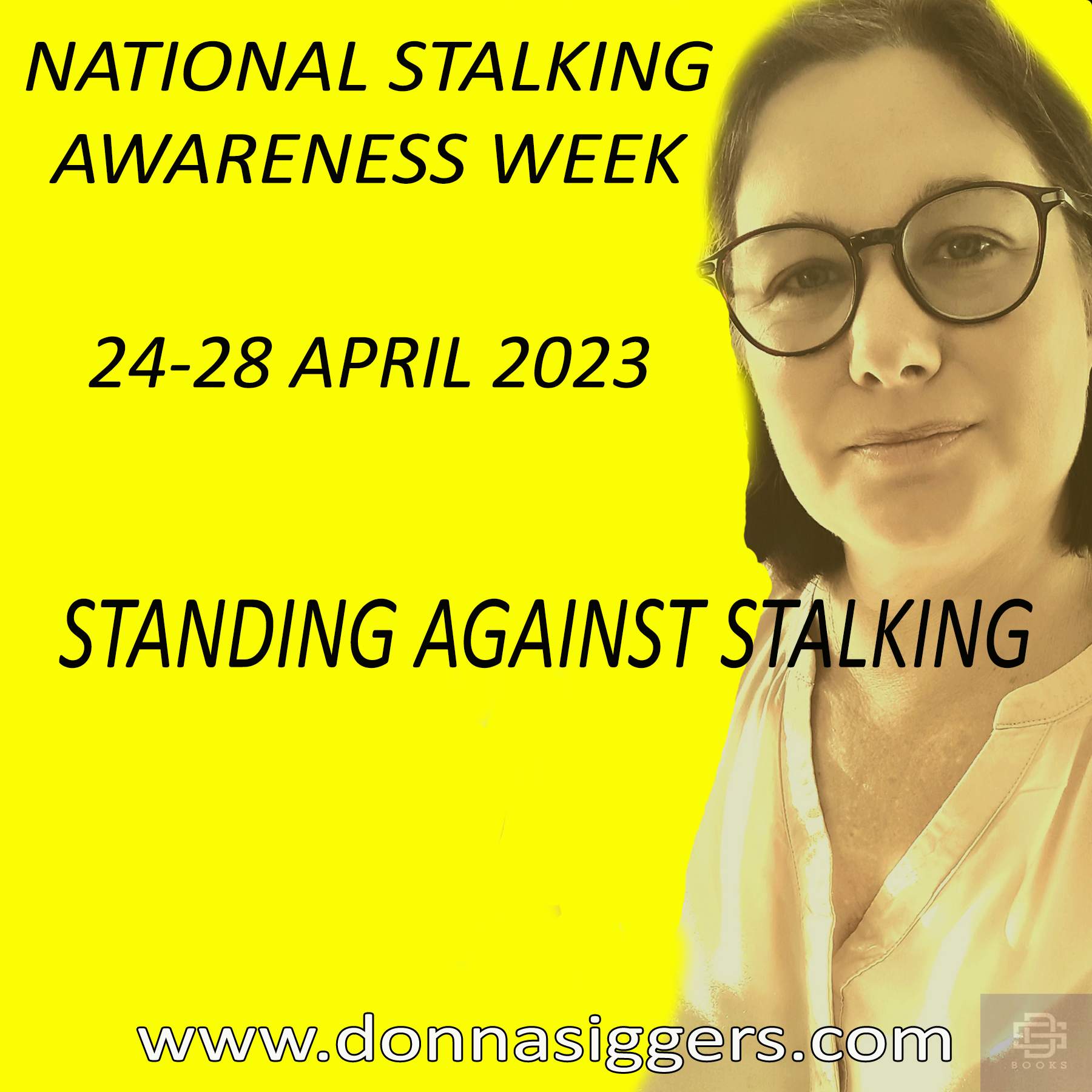Suzy Lamplugh disappeared in 1986 while at work. She was an Estate Agent. Her parents Paul and Diana set up The Suzy Lamplugh Trust to raise awareness about personal safety and to reduce the risk of violence and aggression for those most at risk, in her memory to be able to help others be, and fell safe. Ms Lamplugh was officially declared dead, presumed murdered in 1993—her last known appointment was at a house in Shorrolds Road with a client to whom she referred to as Mr Kipper. The case remains unsolved.
Standing Against Stalking: Supporting Young People is the theme for this year’s National Stalking Awareness Week (2023). The focus is on 16-24 year olds and how to better support young victims. According to the Suzy Lamplugh Trust, who carried out an online pilot survey to explore the experiences of this age range, 77% of respondents to their survey had experienced at least one repeated harmful behaviour considered consistent with stalking. This figure rises to 87% when the parameters of respondents are focused on the respondents identifying as female, non-binary or other. The Trust states that 84% of respondents had experienced behaviours consistent with stalking online behaviours in comparison with 70% experiencing in-person behaviours.
The Trust continues to state that
42% of their respondents had experienced repeatedly being touched in ways that
made them feel uncomfortable as a part of a continuum of behaviours consistent
with stalking. Again this increased (to 47%) when the parameters were moved to
those identifying as female, non-binary or other in comparison to 25% of
respondents who identified as male. 24% of respondents reported someone
repeatedly threatening them online.
The Suzy Lamplugh Trust highlight
that repeated, unwanted behaviours consistent with stalking had some kind of
harmful impact on the wellbeing of the respondents. Alarmingly 33% of the
respondents felt like the behaviour was their fault, 15% reported they harmed
themselves as a result. Only 28% of respondents had considered that the
behaviours they experienced might be stalking while fewer than half of
respondents who spoke to someone felt they had been helpful.
Before I continue with my next
reference to attitudes to stalking, I’d like to share my view on parts of the
above research. There is a massive difference between stalking and assault. The
Trust has alluded to ‘42% of their respondents had experienced repeatedly being
touched in ways that made them feel uncomfortable as a part of a continuum of
behaviours consistent with stalking’. I don’t buy that. That’s a step beyond
stalking—that is assault. When a stalker is getting that close they can touch,
there is a huge issue and they have escalated their behaviour beyond following.
This is a dangerous situation.
A matter that boils my blood is the
attitude of the police force towards the seriousness of stalking. It is
estimated that 85,000 women and 12,000 men (aged 16-59) experience rape,
attempted rape or sexual assault by penetration in England and Wales alone
every year, that is roughly 11 of the most serious sexual offences (of adults
alone) every hour. Approximately 90% of those who are raped know the
perpetrator prior to the offence (www.sosrs.org
sourced 25/04/2023).
Let that sink in for a moment—most stalking victims also know their stalkers!
This brings me back to the Suzy Lamplugh Trust and their ‘Super-Complaint Submitted on Police Response to Stalking’. In brief, this complaint was submitted in 2022 which fell ten years after the stalking legislation was bought into force (2012 was the year my stalker stopped for it suddenly became illegal to continue it). The Trust, on behalf of the National Stalking Consortium found systemic issues in the response to staking across England and Wales—and that this placed many victims at risk. Just 5% of reports of stalking to the police in the year ending March 2022 resulted in a charge by the Crown Prosecution Service (CPS). It was concluded that a lack of understanding among officers as to what behaviours constitute stalking, as well as treating behaviours as single incidents as opposed to recognising the wider pattern of behaviour. The complaint highlighted that stalking was investigated as a low-level offence and was misidentified as harassment. This placed the crime on the wrong pathway within the criminal justice system.
It is my opinion that education is key and this still isn’t happening. In Kent (March 2021) the search for missing Sarah Everard commenced. She was found having been kidnapped and killed by a serving Metropolitan Police officer. This case was prime example of how crime escalating that goes unnoticed and unchecked can cause a catastrophic end. This officer was reported for exposing himself to a different woman much before he murdered Sarah, and it wasn’t taken seriously. Was he protected because he was a police officer? Or, perhaps the woman reporting the incident wasn’t believed? Maybe exposure isn’t deemed dangerous enough to act upon? In this case it was a propellant to a much more serious crime that could have been avoided. Sarah would still be alive if Wayne Couzens had of received psychological help or intervention from his superiors. At the very least he should have lost his job as he was still in a position of trust and that lost Sarah her life.
Imagine if intervention is put in place for stalkers. If at least some can be stopped in their tracks.
Donna Siggers

